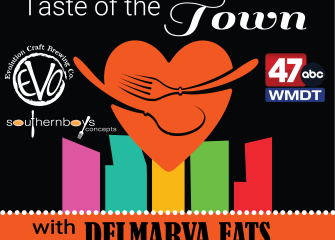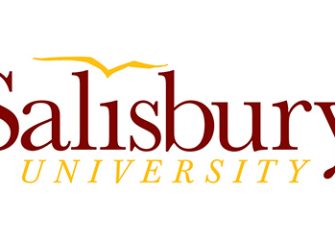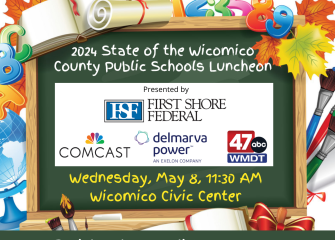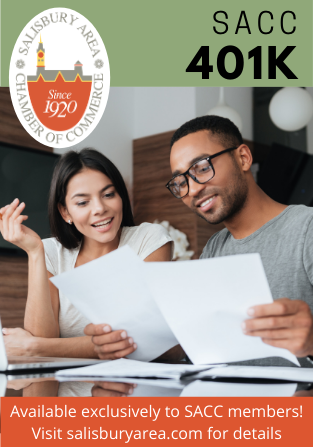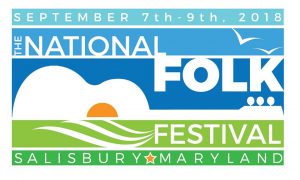
The National Folk Festival, coming to Salisbury, Maryland in 2018, is accepting performer applications for the 2018 festival to be held on September 7-9. Applications may be submitted through the website Sonicbids, an “online matchmaker” which connects musicians with performance opportunities, or by mail sent to the National Folk Festival office located in Downtown Salisbury. The deadline to apply is April 30, 2018.
Typically, the festival receives submissions from about 2,000 artists each year, although only 25-30 can be selected. Over the course of the National’s three-year residency in Salisbury, it will present a dazzling diversity of performers and traditions.
Quality and authenticity are the primary selection criteria for artists. The National Folk Festival’s approach to programming focuses on presenting “traditional” arts – deeply held cultural expressions that are passed on through time in families and communities and in tribal, ethnic, religious, regional, and occupational groups. It presents artists who are firmly rooted in the cultural community from which their music, dance, or other art form derives, rather than “interpreters” of tradition—no matter how accomplished. The Festival strives to be inclusive in terms of race, ethnicity, and region.
All applicants are held to the same standards. The selection of festival participants is guided by the definition of folk and traditional arts established by the National Endowment for the Arts:
Definition of “folk and traditional arts”:
The folk and traditional arts are rooted in and reflective of the cultural life of a community. Community members may share a common ethnic heritage, cultural mores, language, religion, occupation, or geographic region. These vital and constantly reinvigorated artistic traditions are shaped by values and standards of excellence that are passed from generation to generation, most often within family and community, through demonstration, conversation, and practice. Genres of artistic activity include, but are not limited to, music, dance, crafts, and oral expression.
Source: National Endowment for the Arts
What exactly is folk? From a musical perspective, the Festival will include everything from blues, rockabilly, gospel, klezmer, jazz, bluegrass, breakdance, cowboy, polka, tamburitza, old-time, and mariachi to western swing, honky-tonk, beat box, rhythm and blues, and zydeco, as well as traditional music and dance from Cajun, Native American, Celtic, Middle Eastern, Caribbean, Asian, Appalachian, Latin American, African and Pacific Islander cultures. Over three days, audiences will have the chance to see hundreds of artists representing cultural traditions from across the state, nation and the world.
Those interested in performing at the National Folk Festival have two ways to submit their materials for consideration. All artists must follow these guidelines.
When submitting materials, artists must include the following:
• audio and/or video samples/links
• biographical information, and
• press materials.
Note that these materials will NOT be returned.
The PREFERRED METHOD for applying to perform at the National Folk Festival is electronically through https://www.sonicbids.com/find-gigs/play-national-folk-festival-2018-sept/
The ALTERNATE METHOD is to mail a hard copy of artist materials to:
NFF Programming Committee
℅ Salisbury Arts & Entertainment District
110 North Division Street
Salisbury, MD 21801
All materials received will be logged in, and will receive a preliminary review to assess quality, authenticity and appropriateness. Qualified submissions will be brought before the programming advisory group for further consideration.
Artists will NOT be contacted unless the festival is interested in pursuing festival performance possibilities. The high standards of excellence to which the National Folk Festival adheres makes the selection of performing artists a highly competitive process.
It is the policy of the National Folk Festival to present an entirely new festival each year, with no repetition of artists.
For more information on the National Folk Festival, visit: www.nationalfolkfestivalmd.com
# # #
About the National Folk Festival
Since it was first presented in St. Louis in 1934, the National Folk Festival, the NCTA’s flagship event, has celebrated the roots, richness and variety of American culture. Championed in its early years by Eleanor Roosevelt, it was the first event of national stature to present the arts of many nations, races, and languages on equal footing. It was also the first to present to the public musical forms such as the blues, Cajun music, a polka band, Tex-Mex conjunto, Peking Opera, and many others. Today, the National is an exuberant traveling festival, produced by the NCTA in partnership with communities around the country that embraces the diverse cultural expressions that define us as a people in the 21st century.
About the National Council for the Traditional Arts (NCTA)
A leading non-profit in the field, the National Council for the Traditional Arts (NCTA), is dedicated to the presentation and documentation of folk and traditional arts in the U.S. Stressing excellence and authenticity, the NCTA presents the nation’s finest traditional artists in major festivals, tours, concerts, workshops, demonstrations, exhibitions, media productions, school programs, cross-cultural exchanges and other activities. It works in partnership with American communities to establish new, sustainable traditional arts events that deliver lasting social, cultural and economic benefits. Over7,000 hours of the NCTA’s archival audio recordings dating from the 1930s are permanently housed at the American Folklife Center at the Library of Congress. The NCTA champions the interests of folk and traditional artists and organizations in the arena of public policy. http://www.ncta-usa.org
About the City of Salisbury, Maryland
Founded in 1732, Salisbury is the county seat of Wicomico County, a place where John Smith touched land in 1608 during his exploration of the Chesapeake Bay. Situated on Maryland’s historic Eastern Shore at the crossroads of the Delmarva Peninsula, Salisbury is now one of the region’s largest cities, and serves as the capital of the Eastern Shore, a rural area defined by its agricultural and maritime traditions, landscapes and industries. The Chesapeake Bay is central to this distinctive identity. Though a relatively small city, Salisbury is the geographic and economic hub of one of the nation’s fastest-growing Metropolitan Statistical Areas. Led by a dynamic mayor, the City of Salisbury is working to build its reputation as an arts and culture destination, and is aligning its downtown development and revitalization efforts with the arts. Salisbury believes hosting the National Folk Festival is the perfect catalyst to further a cultural renaissance and urban renewal. http://www.salisbury.md

